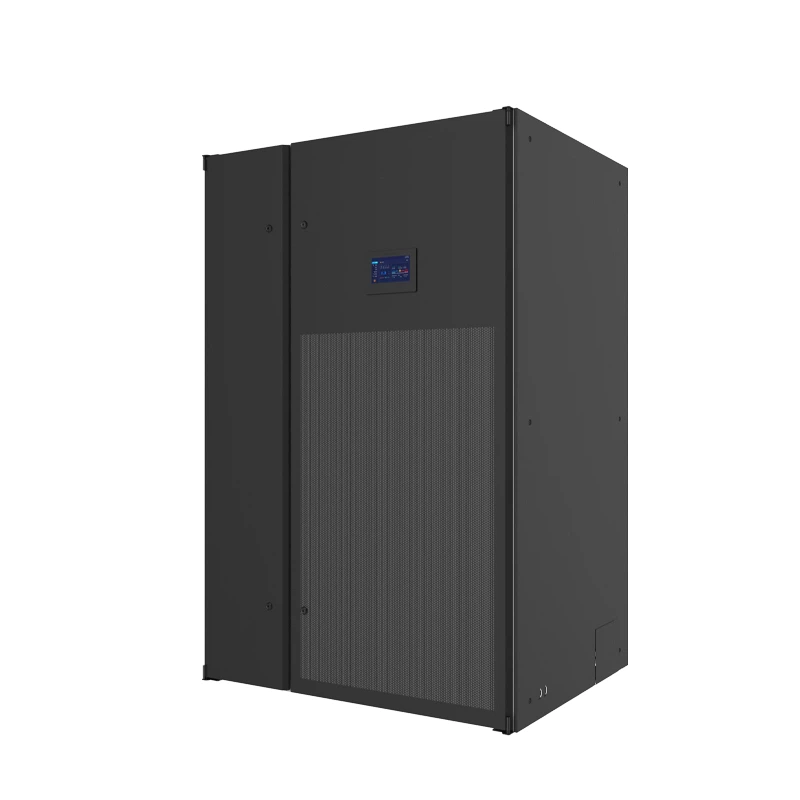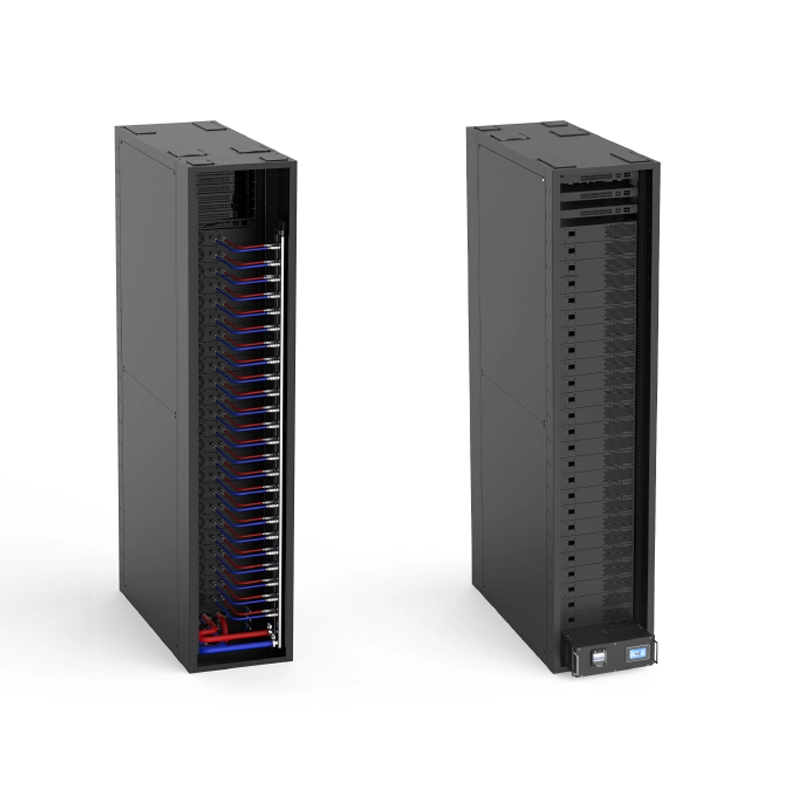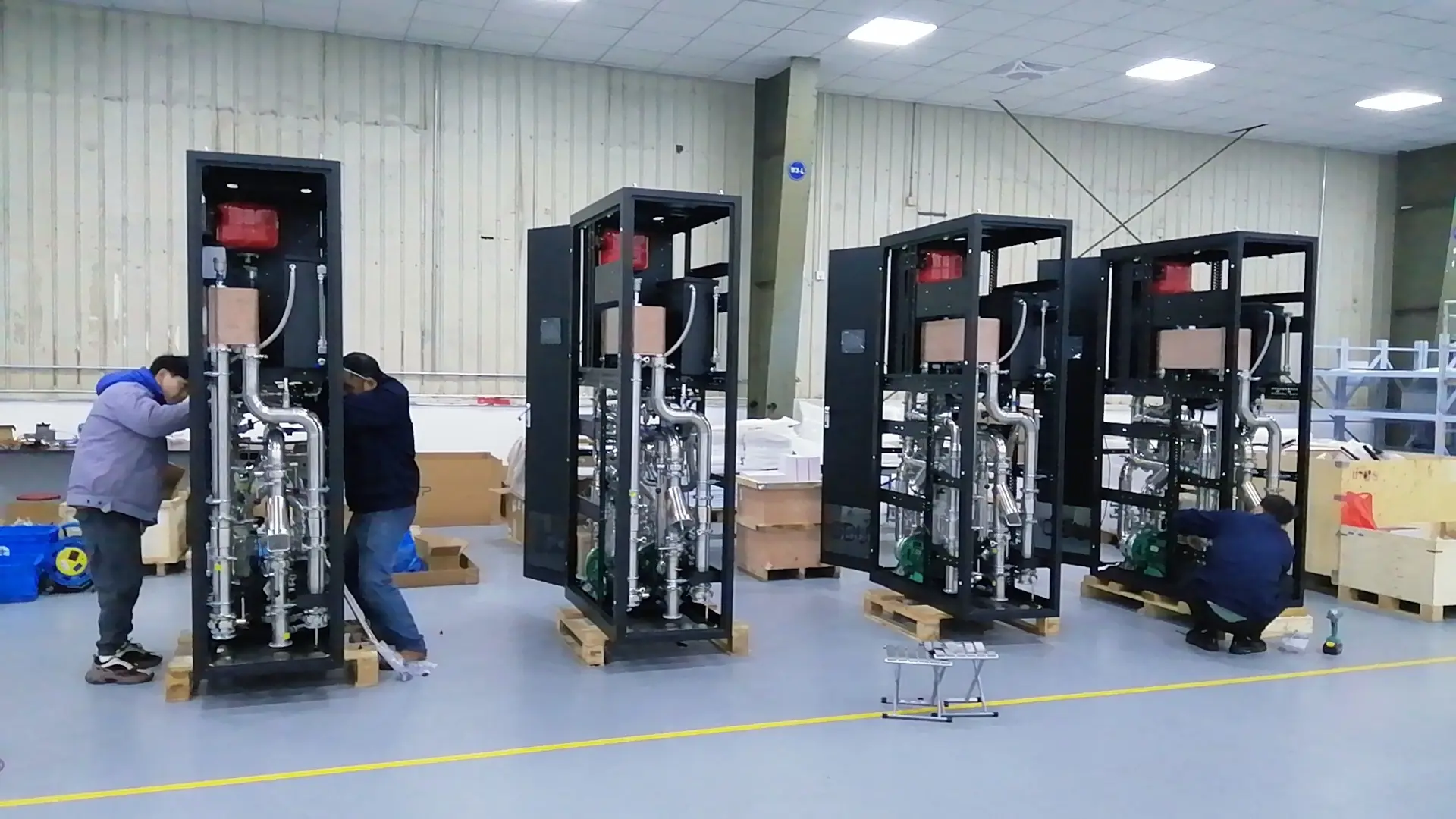الدليل الشامل لأنظمة التبريد الدقيقة
وقت الإصدار: 2025-09-09
جدول المحتويات
في ظل التطور التكنولوجي المتسارع اليوم، أصبح الحفاظ على الظروف المثلى للمعدات الحساسة أكثر أهمية من أي وقت مضى. من مراكز البيانات إلى مختبرات الأبحاث، أنظمة التبريد الدقيقة تلعب أنظمة التبريد الدقيقة دورًا محوريًا في ضمان كفاءة وسلامة وطول عمر مختلف العمليات الحرجة. تتناول هذه المقالة أهمية وميزات وتطبيقات وتطورات أنظمة التبريد الدقيقة.
ما هو نظام التبريد الدقيق؟
نظام التبريد الدقيق هو نظام متخصص للغاية مصمم للحفاظ على درجات حرارة ورطوبة محددة ومُتحكم بها للمعدات والبيئات الحساسة. بخلاف أنظمة تكييف الهواء التقليدية، التي تتسم بطابع عام، صُممت أنظمة التبريد الدقيق لتلبية متطلبات التبريد الفريدة للبيئات عالية الأداء، مثل مراكز البيانات والمختبرات والبيئات الصناعية وشبكات الاتصالات.
تُعد هذه الأنظمة بالغة الأهمية في البيئات التي قد تُسبب فيها تقلبات درجات الحرارة تلفًا للمعدات، أو توقفًا عن العمل، أو تأثيرًا على الأداء. وعلى وجه الخصوص، فإن تنامي الصناعات القائمة على البيانات، حيث تُعالَج كميات هائلة من البيانات على مدار الساعة، جعل أنظمة التبريد الدقيقة جزءًا لا غنى عنه من البنية التحتية الحديثة.
المكونات والميزات الرئيسية لأنظمة التبريد الدقيقة
- وحدات التبريد
غالبًا ما تستخدم أنظمة التبريد الدقيقة حلول تبريد هوائية وسائلة لتلبية احتياجات محددة. عادةً ما يتضمن التبريد الهوائي توجيه تدفق الهواء إلى مناطق ذات توليد حرارة عالية، مثل رفوف الخوادم أو لوحات التحكم. أما التبريد السائل، فيستخدم مبادلات حرارية ومبردات لامتصاص الحرارة ونقلها بكفاءة أكبر. ومن خلال استهداف المناطق الساخنة، يمكن لهذه الأنظمة منع هذه المناطق من التسبب في مشاكل تشغيلية. - التحكم في درجة الحرارة
من السمات المميزة لأنظمة التبريد الدقيقة قدرتها على الحفاظ على درجة حرارة ثابتة ضمن نطاق ضيق. على سبيل المثال، في مراكز البيانات، قد يلزم الحفاظ على درجة حرارة ثابتة تتراوح بين 20 و22 درجة مئوية (±1 درجة مئوية). يُعدّ هذا التحكم الدقيق في درجة الحرارة ضروريًا لمنع ارتفاع درجة حرارة المعدات، مما قد يؤدي إلى انخفاض أدائها، أو في بعض الحالات، إلى تعطلها التام. - التحكم في الرطوبة
يلعب التحكم في الرطوبة دورًا حاسمًا في الحفاظ على الأداء الأمثل للمعدات الحساسة. تتضمن العديد من أنظمة التبريد الدقيقة آليات للتحكم في الرطوبة لضمان بقاء الهواء ضمن معايير محددة. قد تؤدي الرطوبة العالية إلى التكثف وقصر الدائرة الكهربائية، بينما قد يؤدي انخفاض الرطوبة إلى تراكم الكهرباء الساكنة، وكلاهما قد يُتلف الأجهزة الإلكترونية. - كفاءة الطاقة
تُعدّ كفاءة الطاقة أولوية قصوى في أنظمة التبريد الدقيقة، لا سيما مع تزايد الطلب على حلول التبريد في قطاعات مثل تكنولوجيا المعلومات والاتصالات. تُساعد التقنيات المتقدمة، مثل مراوح السرعة المتغيرة، والخوارزميات الذكية، والتبريد الحر (الذي يستخدم الهواء الخارجي عندما تسمح الظروف)، على تقليل استهلاك الطاقة مع الحفاظ على أداء تبريد مثالي. هذه الميزات تجعل أنظمة التبريد الدقيقة أكثر استدامة وفعالية من حيث التكلفة. - قابلية التوسع
صُممت أنظمة التبريد الدقيقة مع مراعاة قابلية التوسع. مع نمو المؤسسات وتغير متطلبات التبريد لديها، يمكن توسيع هذه الأنظمة أو ترقيتها دون توقف كبير. تتيح التصميمات المعيارية مرونة في التكوين، مما يُمكّن الشركات من تعديل أنظمة التبريد الخاصة بها مع تطور بنيتها التحتية. - التكرار
في البيئات بالغة الأهمية، مثل مراكز البيانات، يُعدّ التكرار أمرًا بالغ الأهمية. غالبًا ما تُجهّز أنظمة التبريد الدقيقة بمكونات احتياطية (مثل وحدات التبريد الاحتياطية وإمدادات الطاقة) لضمان التشغيل المتواصل في حال حدوث عطل. يُعدّ هذا التكرار ضروريًا لمنع تعطل النظام، والذي قد يؤدي إلى خسائر فادحة في الإيرادات وثقة العملاء. - التصميم المعياري
العديد من الحديث أنظمة التبريد الدقيقة المعياريةيتيح هذا النظام للمستخدمين مرونةً في توسيعه وتكييفه بما يتناسب مع احتياجاتهم المتزايدة. ويمكن إضافة وحدات معيارية حسب الحاجة، مما يسمح بتوسيع نظام التبريد بسهولة دون الحاجة إلى إصلاحات جذرية أو تعطيل العمليات الحالية.
تطبيقات أنظمة التبريد الدقيقة
- مراكز البيانات
ربما تُعدّ مراكز البيانات أكثر التطبيقات شيوعًا لأنظمة التبريد الدقيقة. تُولّد الخوادم ومعدات الشبكات كمية كبيرة من الحرارة، وبدون تبريد مناسب، قد يؤدي ذلك إلى ارتفاع درجة حرارتها وتعطلها. تكييف الهواء في مركز البيانات وتضمن هذه المرافق الحفاظ على درجة حرارة تشغيل مثالية، مما يمنع حدوث أعطال في الأجهزة ويطيل عمر البنية التحتية المكلفة. - المختبرات ومرافق البحث
يُعدّ التبريد الدقيق ضروريًا أيضًا في المختبرات العلمية، حيث غالبًا ما تتطلب التجارب ظروفًا بيئية محددة. سواءً كان الأمر يتعلق بالتحكم في درجة حرارة التفاعلات الكيميائية، أو حفظ العينات البيولوجية، أو حماية الأدوات الدقيقة، فإن أنظمة التبريد الدقيقة تساعد في الحفاظ على ظروف مستقرة ضرورية لنجاح التجارب. - الاتصالات السلكية واللاسلكية
تعتمد مراكز الاتصالات ومحطات شبكات الهاتف المحمول بشكل كبير على أنظمة التبريد الدقيقة لضمان سلاسة تشغيل شبكات الاتصالات. يُعد تبريد هذه الأنظمة بالغ الأهمية، إذ قد يُؤدي أي تقلب في درجات الحرارة إلى تعطيل الخدمات المُقدمة لملايين المستخدمين. يُساعد التبريد الدقيق على ضمان استمرار عمل البنية التحتية للاتصالات على مدار الساعة. - البيئات الصناعية
تُستخدم أنظمة التبريد الدقيقة في تطبيقات صناعية متنوعة، بما في ذلك تصنيع أشباه الموصلات، وإنتاج الأدوية، وحتى معالجة الأغذية. ففي تصنيع أشباه الموصلات، على سبيل المثال، تُولّد معدات مثل آلات الطباعة الضوئية حرارة شديدة وتتطلب تحكمًا دقيقًا في درجة الحرارة للحفاظ على سلامة عملية التصنيع. وبالمثل، تستخدم مختبرات الأدوية أنظمة تبريد دقيقة للحفاظ على المواد الحساسة للحرارة، والحفاظ على فعالية المواد الكيميائية والأدوية.
خاتمة
أنظمة التبريد الدقيقة ليست مجرد منظمات حرارة؛ بل هي جزء أساسي لضمان التشغيل الآمن والفعال للمعدات الحساسة في مختلف الصناعات. بفضل قدرتها على التحكم في درجة الحرارة والرطوبة ضمن معايير دقيقة للغاية، تُعد هذه الأنظمة أساسية في مراكز البيانات والمختبرات والاتصالات ومختلف التطبيقات الصناعية. ومع استمرار تطور التكنولوجيا، ستواصل أنظمة التبريد الدقيقة تكيفها، مما يوفر كفاءة طاقة أكبر وقابلية للتوسع وقدرات متقدمة لتلبية المتطلبات المتزايدة للبنية التحتية الحديثة.
هل تحتاج إلى حل تبريد دقيق لمركز بياناتك أو مختبرك؟ تواصل معنا اليوم للعثور على النظام الأنسب لاحتياجاتك!


